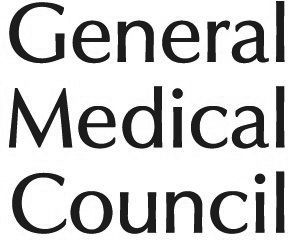Dr Anoop Shetty, Consultant Cardiologist & Electrophysiologist
Dr Anoop Shetty
Consultant Cardiologist & Electrophysiologist
Dr Anoop Shetty BSc MBChB MRCP MD (Res) CCDS CEPS CCT
Consultant Cardiologist & Electrophysiologist
Dr Anoop Shetty
Consultant Cardiologist & Electrophysiologist BSc MBChB MRCP MD (Res) CCDS CEPS CCT
Areas of expertise
- Electrophysiology
- Cardiac rhythm management
- Defibrillator
- Pacemaker surgery
- General cardiology

Recommendations for Dr Shetty
These recommendations are for information purposes only. Doctors providing recommendations do so in good faith and are not responsible for clinical outcomes.






Recommended by:
Make an appointment
Address
-
London Bridge Hospital
27 Tooley Street, London, SE1 2PR
-
The Cardiac Clinic
St Olaf House, 27 Tooley Street, London, SE1 2PR
-
Telephone or video consultation
Virtual
About Dr Anoop Shetty
Dr Anoop Shetty is a highly qualified and experienced Consultant Cardiologist and Electrophysiologist, with expertise in complex electrophysiology and complex device implantation. He is part of The Cardiac Clinic team at London Bridge Hospital, where he provides specialised care to patients.
Dr Shetty has undergone rigorous training in both London and Australia, and he holds international accreditations in electrophysiology (CEPS) and implantable cardiac devices (CCDS) from the International Board of Heart Rhythm Examiners (IBHRE). He is also a Consultant Cardiologist for Guy’s and St Thomas’ NHS Foundation Trust and an Honorary Senior Lecturer at King’s College London.
Dr Shetty has an extensive research background and has contributed significantly to international medical literature. He is a peer reviewer for several reputable scientific journals such as Circulation, Circulation: Arrhythmia and Electrophysiology, JACC Clinical Electrophysiology, The American Journal of Cardiology, Heart, Europace, PACE and BMJ Case Reports. Additionally, he is an editorial board member for Europace, which is a leading academic journal in the field of cardiac electrophysiology.
Dr Shetty's clinical interests include arrhythmia, bradycardia, tachycardia, ventricular fibrillation, and atrial fibrillation. He is proficient in procedures such as ECG, transoesophageal echocardiography, cardiac re-synchronisation therapy, pacemaker implantation, and cardiac pacing. Dr Shetty has been serving patients with dedication since his appointment in 2014.
Areas of expertise
- Arrhythmia (irregular heartbeat)
- Atrial fibrillation
- Atrial flutter
- Bradycardia
- Cardiac generator replacement
- Cardiac MRI
- Cardiac pacing
- Cardiac resynchronisation therapy (CRT)
- Cardiac rhythm management
- Cardiology
- Cardio-pulmonary exercise testing
- Cardioversion
- Catheter ablation
- Complex devices and lead extraction
- Complex electrophysiology
- Ct coronary angiogram
- Defibrillator
- ECG (electrocardiogram)
- ECG holter monitor
- Echocardiogram
- Electrophysiology
- Exercise stress test
- General cardiology
- Implantable cardioverter-defibrillator (ICD)
- Long qt syndrome
- Loss of consciousness (syncope)
- Pacemaker surgery
- Palpitations
- Supraventricular tachycardia (SVT)
- Tachycardia
- Transoesophageal echocardiogram
- Ventricular fibrillation
Professional memberships

Articles by Dr Anoop Shetty
Percutaneous lead and system extraction in patients with cardiac resynchronization therapy (CRT) devices and coronary sinus leads
The acute hemodynamic response to LV pacing within individual branches of the coronary sinus using a quadripolar lead
Predictors of mortality and outcomes in transvenous lead extraction for systemic and local infection cohorts
Transvenous lead extraction in patients with cardiac resynchronization therapy devices is not associated with increased 30-day mortality
Quadripolar left ventricular lead implantation through the anchor struts of a mitral valve annuloplasty device
Advanced image fusion to overlay coronary sinus anatomy with real-time fluoroscopy to facilitate left ventricular lead implantation in CRT
The relative role of patient physiology and device optimisation in cardiac resynchronisation therapy
The impact of beat-to-beat variability in optimising the acute hemodynamic response in cardiac resynchronisation therapy


 Instant booking
Instant booking
























